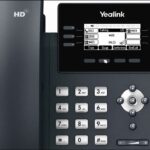As the digital economy grows, Islamic FinTech startups are playing a major role in reshaping how Muslims calculate, donate, and track their zakat fund. What used to be a manual, time-consuming process has now evolved into a streamlined, transparent, and trusted system—thanks to innovative technologies that align with Shariah principles. Today, Muslim donors want convenience, accountability, and real-time updates, and Islamic FinTech companies are delivering exactly that.
1. Digital Zakat Platforms Make Giving Easier
In the past, donors relied on local mosques, community centers, or charity offices to give Zakat. Islamic FinTech startups have replaced this with modern digital platforms where donors can calculate and pay their Zakat instantly.
These platforms offer features like:
-
Automated Zakat calculators
-
Online payment gateways (Shariah-compliant)
-
Secure donor dashboards
-
Mobile apps for on-the-go giving
This ease of access has significantly increased donor participation, especially among young Muslims.
2. Blockchain Boosts Transparency and Trust
Transparency is one of the biggest concerns in charity. Donors want to know exactly where their money is going. Islamic FinTech startups are now using blockchain technology to create an unchangeable record of Zakat transactions.
This ensures:
-
Donors can track their funds
-
No manipulation of financial records
-
Greater trust in Zakat organizations
-
Accurate reporting for audits
Blockchain’s accountability is one of the biggest reasons FinTech is revolutionizing Zakat management.
3. AI Helps Calculate Zakat More Accurately
Calculating Zakat can be confusing—especially with fluctuating gold prices, assets, savings, and investments. AI-powered tools simplify this by analyzing a donor’s financial data and calculating the exact amount due.
These tools are beneficial for:
-
Freelancers
-
Entrepreneurs
-
Investors
-
People with multiple income streams
This level of accuracy ensures Muslims fulfill their religious obligations properly.
4. Mobile Wallets Make Zakat Giving Instant
Digital Islamic wallets such as E-Zakat Wallets allow donors to store funds separately and give them whenever they want. Many wallets even send automated reminders during Ramadan or Nisab calculations.
Features often include:
-
Scheduled Zakat payments
-
Auto deduction options
-
Real-time notifications
-
Secure fund storage
This convenience appeals to tech-savvy donors who want quick and trustworthy options.
5. Smart Zakat Distribution Improves Impact
FinTech startups don’t just help collect Zakat—they help distribute it effectively. Data-driven algorithms analyze community needs and allocate funds where they can make the biggest difference.
Smart distribution supports:
-
Education programs
-
Healthcare for low-income families
-
Small business loans (interest-free)
-
Food security projects
-
Emergency relief efforts
This ensures Zakat is used strategically instead of being distributed randomly.
6. Crowdfunding Platforms Expand Zakat Opportunities
Islamic crowdfunding startups allow donors to browse hundreds of verified causes and contribute their Zakat to specific projects they feel strongly about.
These platforms often include:
-
Verified project listings
-
Donor reviews and ratings
-
Real-time progress trackers
-
Social sharing features
This level of personalization increases both donations and donor satisfaction.
Conclusion
Islamic FinTech startups are revolutionizing Zakat fund management by combining technology, transparency, and Shariah principles. From AI-powered calculators to blockchain transparency and smart distribution models, these innovations are creating a more efficient, trusted, and impactful system for millions of Muslims worldwide.
Read about: https://www.knockinglive.com/why-transparent-donation-reports-build-long-term-donor-trust/
This post was created with our nice and easy submission form. Create your post!





